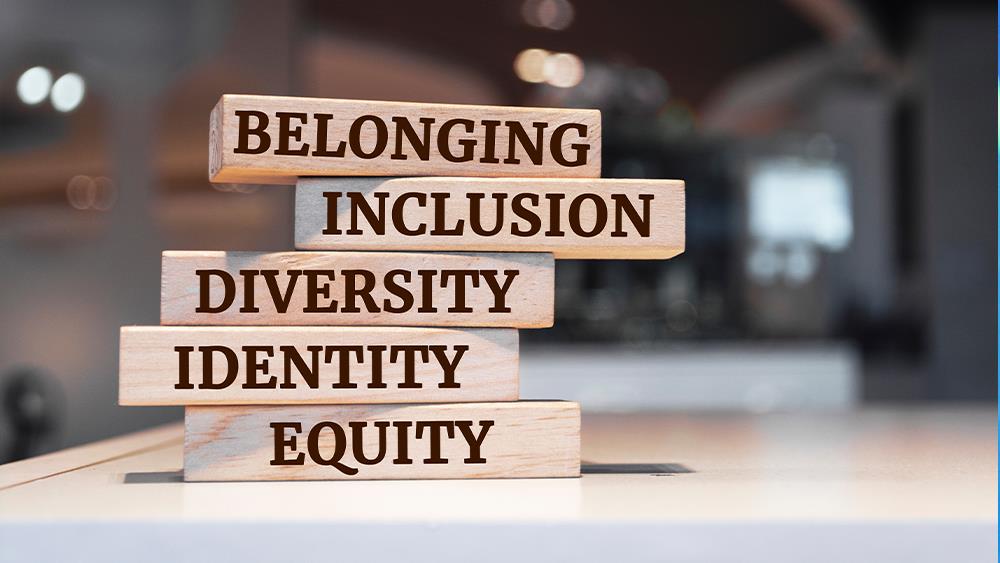

Chris Hayward, CEO, shares why NMBS has embedded inclusion as a central pillar within its culture.
Diversity and inclusion, though often spoken about in the same breath, are not interchangeable terms. Diversity is about representation, about who is in the room. Inclusion is about belonging, about who feels welcome, valued and able to thrive in that room.
In the construction industry and the merchanting sector, this distinction matters. Because we cannot tackle our skills shortages without becoming more diverse, drawing talent from much wider groups. And we cannot become more diverse and succeed in those aims unless we build a more inclusive culture.
Independent merchants are local by nature. The sector hires from local communities, serves them daily and often has multigenerational ties to the surrounding areas.
But despite this deep local knowledge, our workforce does not yet reflect the rich diversity of those same communities. Women, ethnic minorities, LGBTQ+ individuals, people with disabilities and neurodivergent professionals are all still significantly underrepresented. The independent merchant sector has got a few good diversity success stories to tell, but there is still a long way to go to routinely attract and recruit people from different backgrounds.
And as any good employer will also tell you, attraction and recruitment are just the first steps. We must retain those people as well, and this is where the inclusion bit kicks in. It is only when these individuals feel genuinely heard, supported and included that they stay, build their careers in our sector and we move from tokenism to transformation.
Unfortunately, there are still systemic issues that affect retention.
A 2025 report from the University of Manchester identified a “leaky pipeline” effect, where women are lost at various career stages due to organisational bias and inflexible work environments.
For neurodiverse individuals, recent research from the National Federation of Builders revealed that one in four construction workers identify as having a neurodiverse condition, yet few feel adequately supported.
This shows that it’s not just about getting people through the door, but about building and maintaining the environments that allow them to thrive.
As younger generations enter the workforce, they often expect more than just a payslip. As all the research into ‘Generation Z’ shows, this group of employees (now typically in their teens to mid-twenties) are the most likely to have diverse, multi-cultural friendship groups, and expect their workplaces to be the same.
They demand inclusive, values-driven workplaces that invest in their personal and professional development. They are also more vocal about equity, mental health, wellbeing and flexibility, all of which businesses are having to address.
Inclusion is not about grand gestures; it’s about daily behaviours. It is about how managers act when no one is watching, and how businesses listen to, involve and support staff at every level of their careers.
Culture is also a commercial issue. Inclusive businesses are proven to attract a broader talent pool, reduce staff turnover and boost their reputation. Inclusivity is not a ‘soft’ benefit, but a measurable business advantage.
Inclusion is also part of how we can future-proof our businesses and make them resilient. By creating environments where everyone can contribute and succeed, the independent merchant sector will become stronger.
At NMBS, we have embedded inclusion as a central pillar within our culture, our approach to people management and our ESG strategy. Our business plan includes a clear focus on human capital management, alongside responsible procurement and modern slavery awareness.
We actively monitor supplier compliance and encourage ethical behaviours across the supply chain. We are also committed to fair pay, strong employee engagement and local community investment.
To support merchants on this journey, NMBS has partnered with the Construction Inclusion Coalition (CIC), which has created tools, guidance and real-world case studies aimed specifically at businesses in the construction supply chain. The CIC is an industry-led group of merchants, distributors and manufacturers committed to driving greater equity, inclusion and diversity across the built environment.
It is now up to all of us across the merchanting sector to carry this work forward.
Start the journey by reviewing recruitment adverts and hiring processes and asking if they appeal and cater to a wide range of applicants. Look at who gets offered training or promotions and see if there are patterns. Establish feedback channels and ask whether all team members feel able to speak up. Use the CIC resources, and build your own diversity and inclusion programme, informed and led by colleagues with relevant lived experience or just the commitment to excellence.
To find out how NMBS is supporting diversity and inclusion across the sector, visit www.nmbs.co.uk/surfing-the-rising-tide-of-diversity-and-inclusion